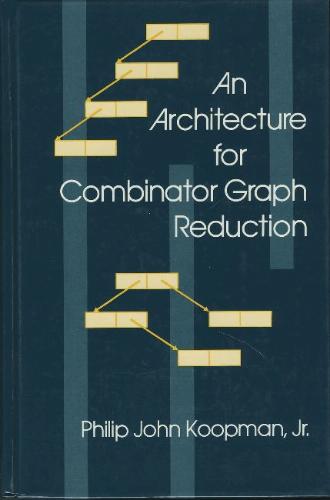
An Architecture for Combinator Graph Reduction
by Philip J. Koopman, Jr.
Publisher: Academic Press 1990
ISBN/ASIN: 0124192408
ISBN-13: 9780124192409
Number of pages: 176
Description:
The results of cache-simulation experiments with an abstract machine for reducing combinator graphs are presented. The abstract machine, called TIGRE, exhibits reduction rates that, for similar kinds of combinator graphs on similar kinds of hardware, compare favorably with previously reported techniques.
Download or read it online for free here:
Download link
(multiple PDF files)
Similar books
 Mathematics for Computer Scientists
Mathematics for Computer Scientistsby Gareth J. Janacek, Mark L. Close - BookBoon
In this textbook you will find the basic mathematics needed by computer scientists. It should help you to understand the meaning of mathematical concepts. Subjects as elementary logic, factorization, plotting functions and matrices are explained.
(27885 views)
 Numerical Algorithms: Methods for Computer Vision, Machine Learning, and Graphics
Numerical Algorithms: Methods for Computer Vision, Machine Learning, and Graphicsby Justin Solomon - CRC Press
Using examples from a broad base of computational tasks, including data processing and computational photography, the book introduces numerical modeling and algorithmic design from a practical standpoint and provides insight into theoretical tools.
(10241 views)
 Strange Attractors: Creating Patterns in Chaos
Strange Attractors: Creating Patterns in Chaosby Julien C. Sprott - M & T Books
Chaos and fractals have revolutionized our view of the world. This book shows examples of the artistic beauty that can arise from very simple equations, and teaches the reader how to produce an endless variety of such patterns.
(21597 views)
 Art Gallery Theorems and Algorithms
Art Gallery Theorems and Algorithmsby Joseph O'Rourke - Oxford University Press
Art gallery theorems and algorithms are so called because they relate to problems involving the visibility of geometrical shapes and their internal surfaces. This book explores generalizations and specializations in these areas.
(21138 views)